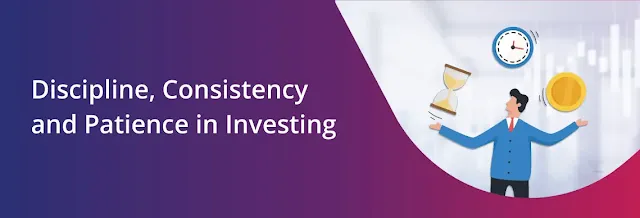Estimated Reading Time: 5 minutes
How to Learn a New Language Quickly and Effectively?
Learning a new language is an exciting yet challenging journey. Whether you're learning for personal growth, travel, or career opportunities, mastering a new language can open doors to a world of possibilities. However, many learners face the question: how can you learn a new language quickly and effectively? In this article, we will explore proven methods, tips, and strategies to speed up your language learning process while ensuring a solid understanding of the language.
1. Set Clear Goals and Stay Motivated
One of the key components of learning any new language is to set clear, achievable goals. Without a clear direction, you might lose motivation halfway through the process. The following are some effective strategies to keep you on track:
- Short-term goals: Aim for small milestones such as mastering the basics of greetings, numbers, or essential verbs in the first few weeks.
- Long-term goals: Think about what you want to accomplish in 6 months or a year, such as holding a basic conversation or watching a movie in the target language without subtitles.
Setting realistic expectations will help you stay motivated and gauge your progress. Also, remember to celebrate every small achievement along the way.
2. Immerse Yourself in the Language
Immersion is one of the fastest and most effective ways to learn a new language. The more you expose yourself to the language, the quicker you'll pick up its nuances and structures. Here are a few tips to immerse yourself:
- Watch movies and TV shows in the target language. Use subtitles in your native language at first, and gradually switch to subtitles in the target language or none at all.
- Listen to podcasts or audiobooks in the language, especially during daily activities like commuting or exercising.
- Engage with social media content in the target language. Follow accounts, read posts, and try to interact in comments.
- Change your device language settings to the language you are learning. This will force you to learn new words and phrases.
By consistently surrounding yourself with the language, you will start to absorb it more naturally.
3. Focus on Vocabulary and Phrases, Not Grammar Rules
While grammar is important, it can overwhelm beginners. Instead of focusing too much on memorizing grammar rules, prioritize learning useful vocabulary and commonly used phrases. Knowing the essential words and expressions will help you communicate more effectively right from the start.
- Learn common phrases used in everyday conversations, such as greetings, asking for directions, ordering food, etc.
- Use flashcards or apps like Anki or Quizlet to practice new words and reinforce your memory.
- Group related vocabulary together, like numbers, colors, and food items, to make learning more organized and easier to recall.
This approach helps build a practical foundation, allowing you to start speaking sooner and feel more confident.
4. Practice Speaking Every Day
Speaking is often the most challenging aspect of learning a new language, especially when you don’t have native speakers around. However, daily practice is crucial to developing fluency. The key is consistent practice, even if it’s just a few minutes each day.
- Language exchange apps like Tandem or HelloTalk let you chat with native speakers and practice real-world conversations.
- Join language meetups or conversation clubs in your area or online.
- Practice speaking aloud with yourself, even if you’re just talking to an empty room. This will help improve your pronunciation and build muscle memory.
Even if you make mistakes, keep speaking. The more you practice, the more confident and fluent you will become.
5. Use Technology and Language Learning Apps
In the age of technology, you don’t need to rely solely on textbooks to learn a new language. Language learning apps can be a game-changer. Apps like Duolingo, Babbel, or Memrise offer structured lessons that are perfect for beginners and advanced learners alike. These platforms make learning fun and interactive, helping you stay motivated with daily challenges and progress tracking.
Here’s how to maximize the use of language apps:
- Set aside 10-15 minutes every day for quick practice sessions.
- Focus on listening and speaking features in the apps to improve pronunciation.
- Explore advanced courses or community-based learning sections to deepen your knowledge.
Technology offers a wealth of resources to aid your learning, so make sure to use them effectively.
6. Practice Active Listening
Active listening is a critical skill when learning a language. It’s not just about hearing words—it’s about fully understanding and processing the information. By practicing active listening, you’ll improve your comprehension and pronunciation skills.
- Listen to native speakers in real-life conversations, movies, or podcasts. Pay attention to intonation, accent, and speech patterns.
- Try to repeat what you hear, focusing on mimicking the speaker’s rhythm and pronunciation. This technique, called shadowing, is proven to accelerate language learning.
- Take note of new vocabulary you hear during your listening practice and add it to your study list.
The more you listen actively, the more you will understand how the language sounds and flows.
7. Be Patient and Consistent
Learning a language takes time and effort, and it’s important to remain patient with yourself throughout the process. There will be times when progress seems slow or when you feel frustrated, but consistency is key.
- Practice every day, even if it’s just for 10-15 minutes. The more often you expose yourself to the language, the quicker you’ll learn.
- Don’t be afraid to make mistakes. Mistakes are a natural part of learning and will help you improve faster.
- Track your progress to see how far you’ve come. This will encourage you to keep going.
Remember that language learning is a marathon, not a sprint. The more consistent and patient you are, the more effective your learning will be.
Achieving Fluency in a New Language
Learning a new language quickly and effectively is absolutely achievable with the right approach. By setting clear goals, immersing yourself in the language, focusing on vocabulary, and practicing speaking every day, you will gain the skills necessary to communicate confidently. Leveraging technology, staying patient, and practicing active listening will also ensure a deeper understanding of the language. Most importantly, remember that language learning is a gradual process, and with consistent effort, fluency is within your reach.
By following these strategies, you can significantly accelerate your language learning process and start enjoying the benefits of speaking a new language in no time. So, get started today, and remember: consistency and dedication are your best allies!
FAQs
1. How long does it take to learn a new language?
Answer: The time it takes to learn a new language varies depending on several factors, including the complexity of the language, the amount of time you dedicate to practice, and your language learning methods. On average, it may take anywhere from 6 months to a few years to become fluent, but with consistent practice and effective techniques, you can reach a conversational level much quicker.
2. What’s the best way to memorize vocabulary in a new language?
Answer: The most effective way to memorize vocabulary is through repetition and active recall. Use flashcards (like Anki or Quizlet) to review words regularly, group related words together, and make use of mnemonic devices. Practice the vocabulary in context by using it in sentences or conversations. Additionally, immersing yourself in the language by watching media or listening to podcasts will help reinforce new words.
3. How can I practice speaking if I don’t have native speakers around me?
Answer: Even without native speakers, you can still practice speaking by using language exchange apps like HelloTalk or Tandem to find conversation partners. Additionally, try speaking to yourself aloud, repeating phrases and mimicking the pronunciation of native speakers. Join online language meetups or use language learning platforms that offer speaking practice, such as conversation clubs or video calls with fellow learners.
4. How can I stay motivated to keep learning a language?
Answer: Staying motivated involves setting clear, achievable goals and tracking your progress. Break your learning into small milestones and celebrate each success. Immerse yourself in the language as much as possible by listening to music, watching TV shows, or reading in the target language. Find ways to make learning fun, like playing language learning games or connecting with others who share your goals.
Reference Source:
https://www.quora.com/How-do-I-quickly-and-efficiently-learn-a-new-language







